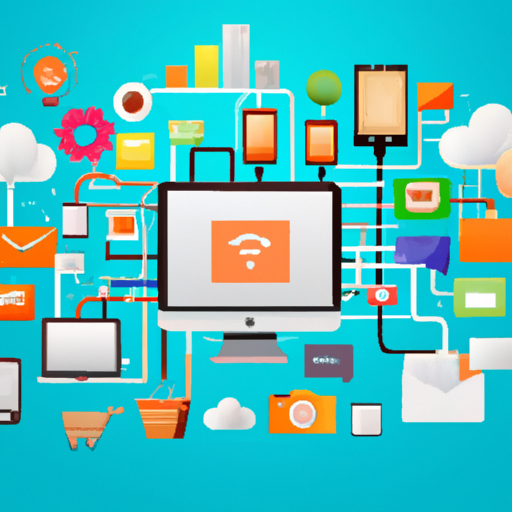Automated marketing campaigns
Understanding automated marketing campaigns
Automated marketing campaigns are revolutionizing the way businesses approach customer engagement and lead generation.
Imagine having a system that performs repetitive tasks like email marketing, social media posting, and even ad management without you lifting a finger!
That’s precisely what automated marketing campaigns offer.
By leveraging technology, these campaigns help businesses save time, reduce errors, and maintain consistent communication with their audience.
Why automated marketing campaigns are essential
So why should you care about automated marketing campaigns?
First off, they streamline your workflow.
Instead of manually handling every aspect of your marketing strategy, automation tools can take over the mundane tasks.
This frees up your time to focus on more strategic and creative endeavors.
Moreover, automation ensures that your marketing efforts are consistent.
With automated systems in place, you can schedule posts, emails, and advertisements well in advance.
This consistency helps in building a reliable brand image.
Lastly, automated campaigns provide valuable insights through analytics.
These insights allow you to tweak your strategies for better performance continually.
The role of marketing automation in digital marketing
Marketing automation is a crucial component of digital marketing.
It integrates seamlessly with other aspects like seo (search engine optimization), content marketing, and social media management.
For instance, an automated email campaign can be triggered by user behavior on your website.
If someone downloads a free ebook from your site, an automated system can send follow-up emails to nurture that lead into becoming a paying customer.
Similarly, social media automation tools can schedule posts at optimal times for engagement based on data analytics.
These tools ensure you’re reaching the right audience at the right time without manual intervention.
Steps to implement an automated marketing campaign
Implementing an automated marketing campaign might seem daunting at first glance.
However, breaking it down into manageable steps makes the process much simpler:
1. Define your goals
What do you hope to achieve with this campaign? Is it increased sales? Higher engagement rates? More website traffic?
2. Choose the right tools
There are numerous automation tools available—hubspot for inbound marketing or hootsuite for social media scheduling are popular choices among marketers.
3. Segment your audience
Not all customers are alike; segmenting them based on demographics or behavior will make your campaigns more effective.
4. Create compelling content
Your content needs to be engaging enough to capture attention but also informative enough to drive action—be it clicking on a link or making a purchase.
5. Set up triggers and workflows
Triggers initiate actions within your campaign—like sending an email when someone subscribes—and workflows dictate what happens next in the sequence of events within that campaign framework.
Real-life examples of successful automated marketing campaigns
Let’s look at some real-life examples where automated marketing has made a significant impact:
1. Amazon’s personalized recommendations
Amazon uses sophisticated algorithms to analyze browsing history and purchase patterns.
This data drives their personalized recommendation engine—automatically suggesting products tailored specifically for each user.
The result? Increased sales and improved customer satisfaction!
2. Airbnb’s welcome emails
When users sign up on airbnb as hosts or guests—they receive personalized welcome emails tailored according to their role.
These emails guide them through initial steps while also offering tips & resources—enhancing user experience from day one!
Challenges and solutions in automated marketing campaigns
While there are numerous benefits associated with automated marketing campaigns—they aren’t without challenges either:
1) Data management issues:
Handling large volumes of data efficiently is critical—but often challenging!
Solution: invest in robust crm (customer relationship management) systems capable of handling big data effectively!
2) Over-automation risks:
Too much automation can make interactions feel impersonal—which could alienate customers!
Solution: balance automation with personal touches wherever possible—for instance by incorporating personalized messages within automated emails!
The future of automated marketing campaigns
As technology continues evolving—the future looks promising for automated marketing campaigns:
Expect more advanced ai-driven solutions capable not just automating tasks but also predicting trends & making strategic decisions autonomously!
Moreover—with iot (internet of things) gaining traction—we might soon see fully integrated systems where every touchpoint—from smart devices at home—to online platforms—is part seamless interconnected ecosystem driving hyper-personalized experiences!
In conclusion—it’s clear that embracing automation isn’t just beneficial—it’s essential staying competitive today’s fast-paced digital landscape! So if haven’t already—it’s high time start exploring possibilities offered by this exciting frontier!



